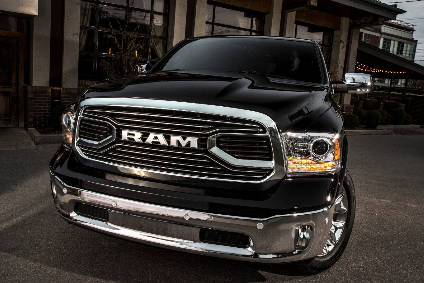
Increased government scrutiny following the Volkswagen 'dieselgate' has led to the US Environmental Protection Agency (EPA) issuing a notice of violation to Fiat Chrysler Automobiles and FCA US for alleged violations of the Clean Air Act relating to NOx emissions from diesel vehicles. Promising a fight, FCA US in turn insisted its "diesel-powered vehicles meet all applicable regulatory requirements".
The EPA claims FCA installed and failed to disclose engine management software in light-duty model year 2014, 2015 and 2016 Jeep Grand Cherokees and Dodge Ram 1500 trucks with three-litre diesel engines sold in the US which results in increased emissions of nitrogen oxides (NOx) from the vehicles. The allegations cover roughly 104,000 vehicles. EPA is working in coordination with the California Air Resources Board (CARB), which has also issued a notice of violation to FCA. EPA and CARB have both initiated investigations based on FCA's alleged actions.

Discover B2B Marketing That Performs
Combine business intelligence and editorial excellence to reach engaged professionals across 36 leading media platforms.
"Failing to disclose software that affects emissions in a vehicle's engine is a serious violation of the law, which can result in harmful pollution in the air we breathe," Cynthia Giles, assistant administrator for EPA's Office of Enforcement and Compliance Assurance, said in a statement. "We continue to investigate the nature and impact of these devices. All automakers must play by the same rules, and we will continue to hold companies accountable that gain an unfair and illegal competitive advantage."
"Once again, a major automaker made the business decision to skirt the rules and got caught," said CARB chair Mary Nichols. "CARB and EPA made a commitment to enhanced testing as the Volkswagen case developed, and this is a result of that collaboration."
The Clean Air Act requires vehicle manufacturers to demonstrate to EPA through a certification process that their products meet applicable federal emission standards to control air pollution. As part of the certification process, automakers are required to disclose and explain any software, known as auxiliary emission control devices, that can alter how a vehicle emits air pollution. EPA's statement claims FCA did not disclose the existence of certain auxiliary emission control devices to EPA in its applications for certificates of conformity for model year 2014, 2015 and 2016 Jeep Grand Cherokees and Dodge Ram 1500 trucks, despite being aware that such a disclosure was mandatory.
"By failing to disclose this software and then selling vehicles that contained it, FCA violated important provisions of the Clean Air Act."
FCA may be liable for civil penalties and injunctive relief for the violations alleged in the NOV. EPA is also investigating whether the auxiliary emission control devices constitute 'defeat devices' which are illegal.
In September 2015, EPA instituted an expanded testing programme to screen for defeat devices on light duty vehicles. It said the FCA vehicle models in question produce increased NOx emissions under conditions that would be encountered in normal operation and use. As part of the investigation, EPA has found at least eight undisclosed pieces of software that can alter how a vehicle emits air pollution.
For its part, FCA US said it was "disappointed" with the EPA decision.
"FCA US intends to work with the incoming administration to present its case and resolve this matter fairly and equitably and to assure the EPA and FCA US customers that the company's diesel-powered vehicles meet all applicable regulatory requirements," it said in a statement.
"FCA US diesel engines are equipped with state-of-the-art emission control systems hardware, including selective catalytic reduction (SCR). Every auto manufacturer must employ various strategies to control tailpipe emissions in order to balance EPA's regulatory requirements for low nitrogen oxide (NOx) emissions and requirements for engine durability and performance, safety and fuel efficiency. FCA US believes that its emission control systems meet the applicable requirements.
"FCA US has spent months providing voluminous information in response to requests from EPA and other governmental authorities and has sought to explain its emissions control technology to EPA representatives. FCA US has proposed a number of actions to address EPA's concerns, including developing extensive software changes to our emissions control strategies that could be implemented in these vehicles immediately to further improve emissions performance.
"FCA US looks forward to the opportunity to meet with the EPA's enforcement division and representatives of the new administration to demonstrate that FCA US's emissions control strategies are properly justified and thus are not 'defeat devices' under applicable regulations and to resolve this matter expeditiously."






